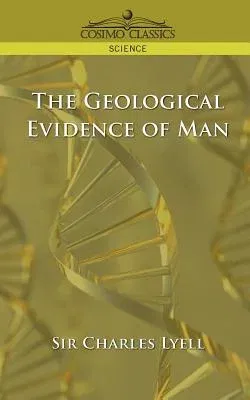It's impossible to overstate the significance of this classic of
scientific literature. A necessary companion to Darwin's The Origin of
Species, it springs from the ingenious mind of one of his closest
friends, geologist Charles Lyell, whose theories were a critical
influence on Darwin's landmark work. First published in 1863, this
exploration of the implications of Darwin's "natural selection" for
humans remains one of the clearest, most concise explanations of a
foundational branch of modern biology. Eminently insightful, the books
sings with a scientific poeticism -- chapter sections have such titles
as: . "Works of Art in Danish Peat-Mosses" . "Curiosity awakened by the
systematic Exploration of the Brixham Cave" . "Two Species of Elephant
and Hippopotamus coexisting with Man in France" . "Extinct Mammalia in
the Valley of the Oise" Readers in the sciences are sure to find this
essential book a highly engaging one as well. Scottish geologist and
natural philosopher SIR CHARLES LYELL (1797-1875) was one of the
foremost popularizers of science of his time, and the fundamental
scientific concepts he developed continue to shape geology and
evolutionary biology today. He also wrote the multivolume Principles of
Geology: An Attempt to Explain the Former Changes of the Earth's Surface
by Reference to Causes Now in Operation. Craters on Mars and the Moon
are named in his honor.


